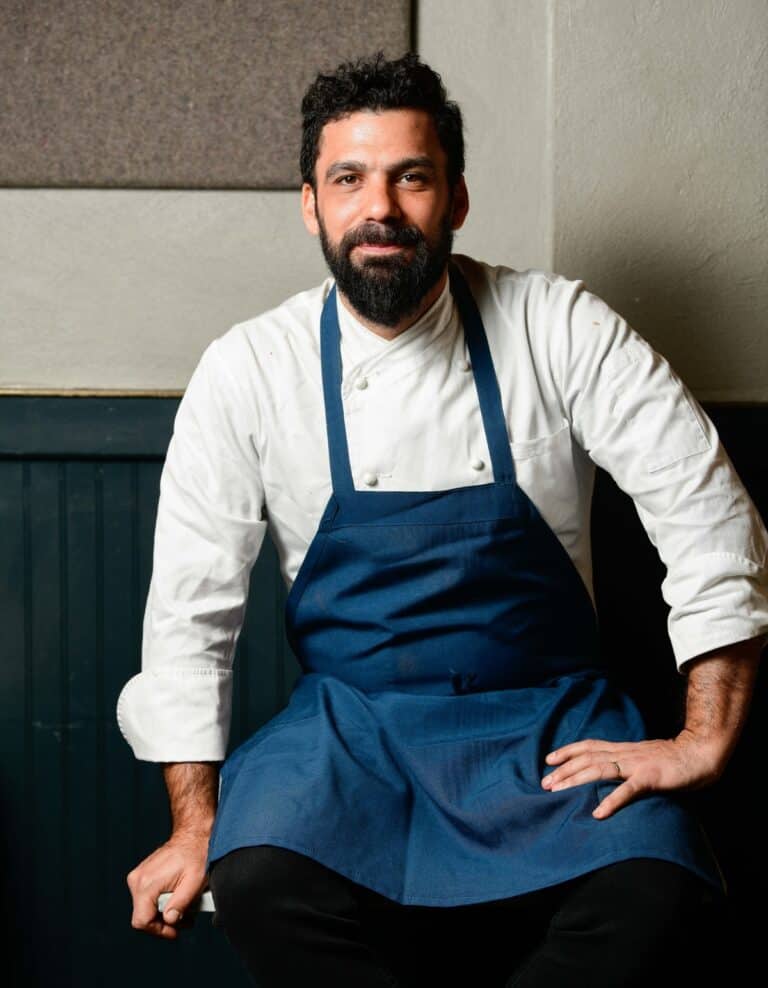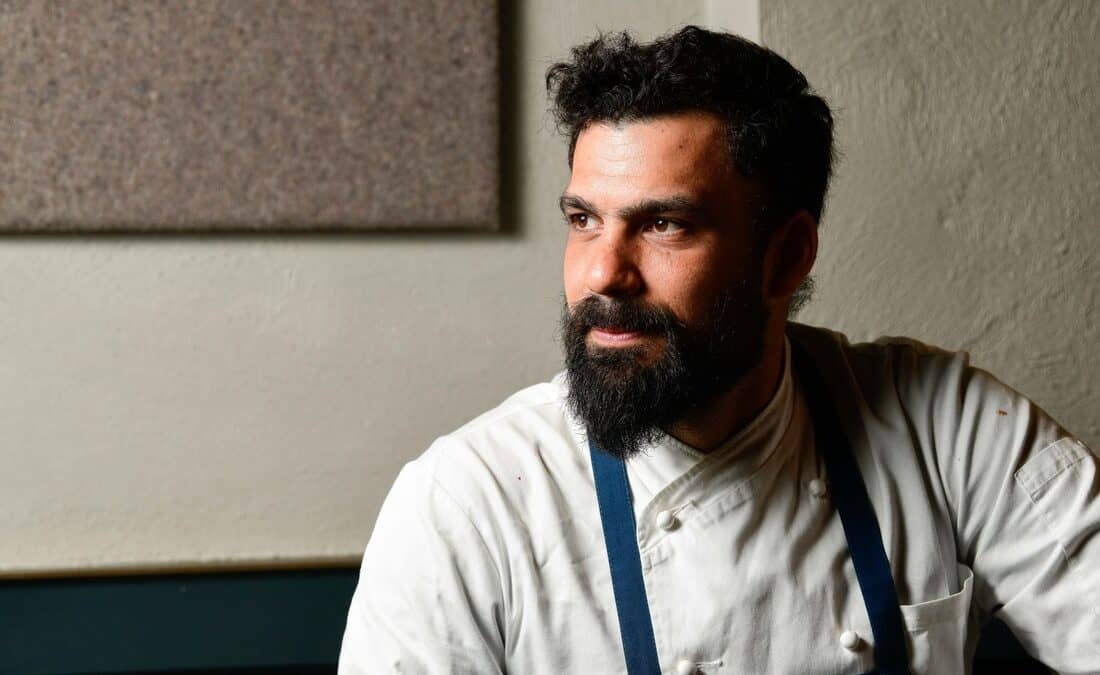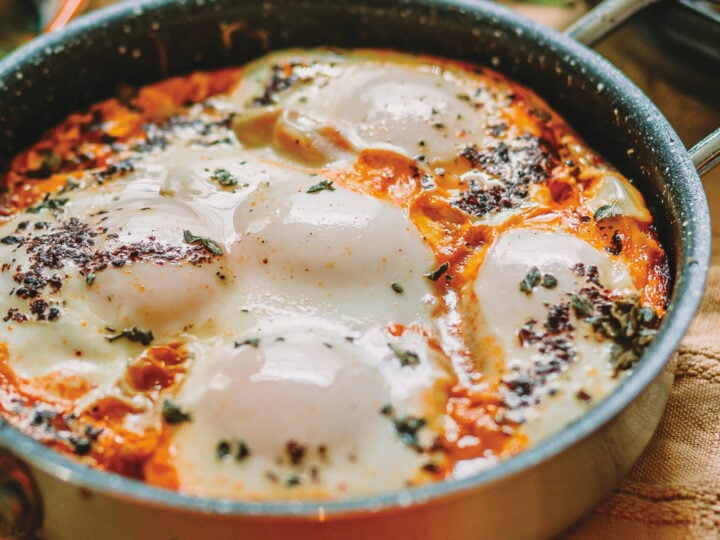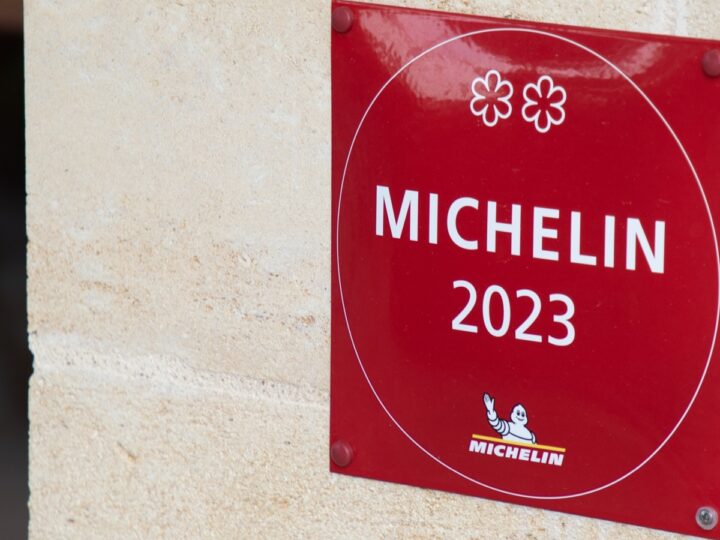New York City-based Israeli chef Nadav Greenberg has just arrived with his family at Midbara, their Negev holiday destination, after a long drive south (newborn baby in tow) yet he keeps to our scheduled call and enthusiastically discusses his craft and the feted West Village restaurant under his helm.
He has a lot to be proud of. Just five months after its opening in May 2022, Shmoné (Hebrew for “eight” after its location on West 8th Street) was nominated in Michelin’s top new restaurant category.
“It’s a dream of every chef to go for that star. I was shocked when my phone started to ring as the news got out,” he tells ISRAEL21c.
Shmoné is one of more than 40 restaurants worldwide in the Eyal Shani culinary empire, known mostly for its banner restaurants, HaSalon and Miznon.
Shani’s unique vision, Greenberg shares, underlies them all: Dishes should be simplified and include only two, three or four ingredients to allow them to “shine on the plate.”
A good example of this is a beet dish served at Shmoné consisting of grilled yellow beets on a bed of purple beet cream. “It celebrates the vegetable by layering beet on beet and as it only contains olive oil, beets and sage this central ingredient is allowed to really be itself,” the chef explains.
The ingredients
Olive oil is a subject that could fill a whole afternoon’s discussion with Greenberg. One aspect is its place in the home kitchen of his childhood.
“My Moroccan mother would serve chicken alongside mashed potato and a chopped salad. As she wouldn’t add milk or cream to the potato [due to kosher dietary laws prohibiting meat and dairy served together] it was left quite dry. But I remember how the olive oil juices running from the salad would seep into it and make it taste delicious.”
“I believe in bringing back joy through culinary memories.”
The Jerusalem born chef pays homage to this memory in a simple dish served at the restaurant: chicken breast (sourced from a specialist purveyor in Pennsylvania) and mashed potato topped with olive oil, scallions, tomato seeds and hot pepper.
Butter, Greenberg concedes, “is always an escape as it’s so much easier to cook with and it just makes things tasty. But it’s my responsibility towards my guests that after a couple of hours of eating at the restaurant, they don’t feel heavy and the best way to do this is to substitute butter with olive oil.”
He has found other interesting alternatives. After researching American barbecue’s traditional sweet marinades, Greenberg opted to use grapes instead of sugar in his own sauces and loved the result. “We nailed it,” he says proudly.
Yet he also values tradition. When a restaurant employee who had grown up in an Orthodox home sent a photograph of a Jerusalem kugel he was savoring at a restaurant in Brooklyn, Greenberg decided to rework this sweet, peppery dish without sugar or raisins. Instead the taste of black pepper stands out, and it’s served with sour cream topped with caviar.
“I was born in Jerusalem and this dish is based on a memory. I believe in bringing back joy through culinary memories. There has to be a story behind every dish.”
The chef’s own story
Greenberg, 37, began cooking while he was in third grade.
“My grandmother saw me making an omelet and really encouraged me in the kitchen. I would even skip school to go home and make lunch for all my friends.”

Inspired by the kitchens of his European grandmothers and without any formal training, Greenberg then worked his way up in many of the top Israeli restaurants and eventually opened his own restaurant/bar in Jerusalem.
However after the restaurant was destroyed in an accidental fire, he was disheartened and decided to change career paths and study economics. This was followed by an MBA and working as a business analyst at Coca-Cola.
But he still could not kick the cooking bug and moonlighted as a private chef.
It was Eyal Shani who brought Greenberg back to the culinary world full time after proposing in 2019 that he move to New York and be the chef at North Miznon on the Upper West Side. Last year, Shani offered Greenberg the position of executive chef at Shmoné.
Besides the Michelin accolade, what makes Greenberg happy is that the restaurant has gained a strong neighborhood following from the “young and beautiful” locals and Israeli visitors in this trendy Greenwich Village area.
Farm to table
What makes an Israeli chef restaurant special?
“We learn fast and are passionate about bringing our perspective to the world,” replies Greenberg.
“This starts with a farm-to-table menu that uses lots of the freshest and best vegetables as we cook seasonally. Even in Spain, you ask for a tomato at breakfast and they think it’s weird.”
A menu that changes daily according to what is in season is challenging, especially in winter, but it also gives the chef a chance to “play and think out of the box, which is what Israelis love to do.”
“We also love informality and in our intimate restaurant this is created by having an open kitchen surrounded by the chef’s counter. Diners love this laidback atmosphere where they can always be assured of a warm welcome, happy vibes and occasionally the chef sharing a shot with them, which breaks the heaviness of service.”
Occasionally if things get busy, he says, diners are treated to a snack such as a tomato carpaccio and fish tartar eaten by hand. “Yes, it is out the box and bold!”
For more information, click here.
















